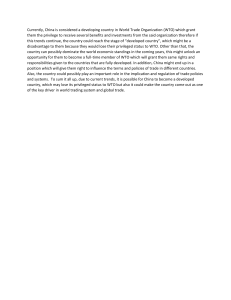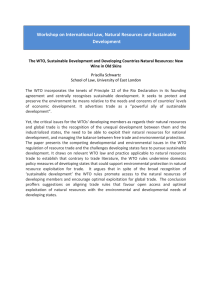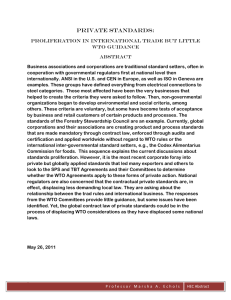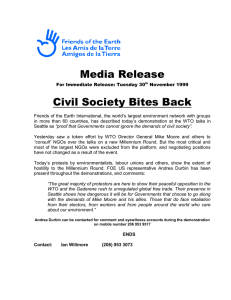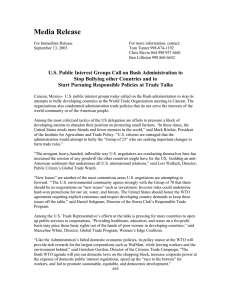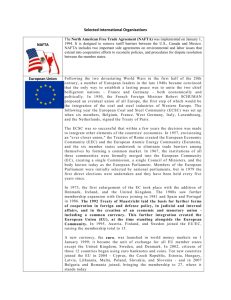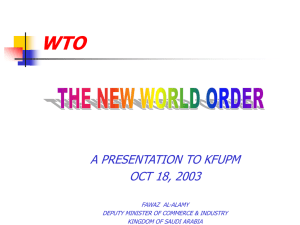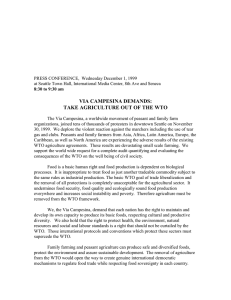Workshop on International Law, Natural Resources and Sustainable Development
advertisement
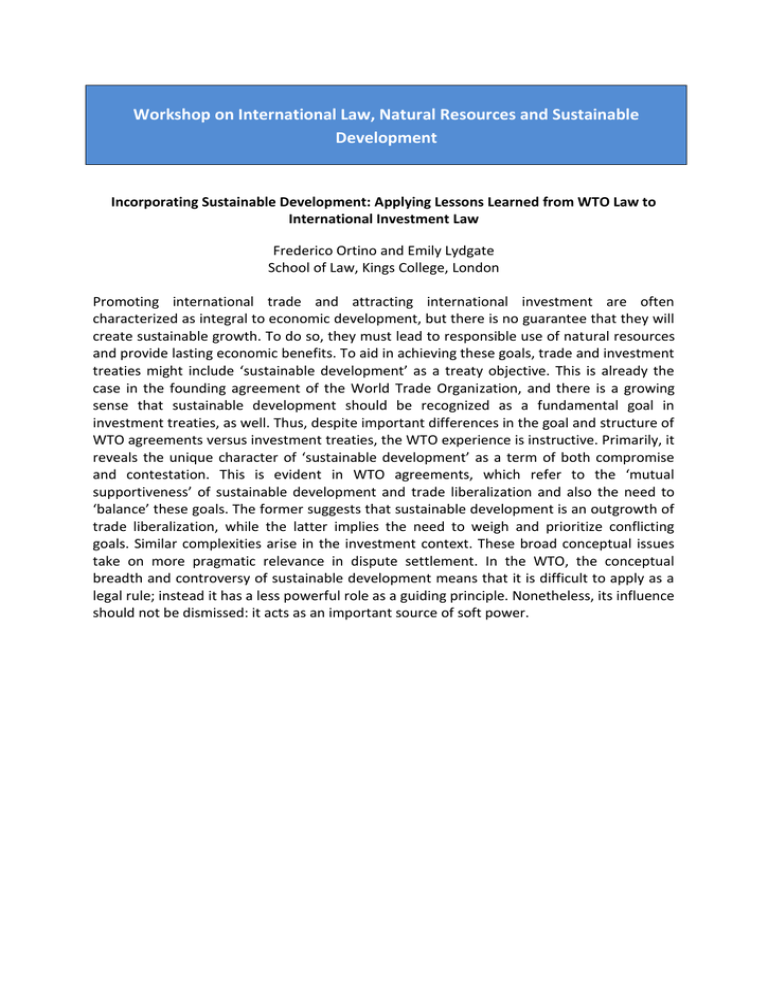
Workshop on International Law, Natural Resources and Sustainable Development Incorporating Sustainable Development: Applying Lessons Learned from WTO Law to International Investment Law Frederico Ortino and Emily Lydgate School of Law, Kings College, London Promoting international trade and attracting international investment are often characterized as integral to economic development, but there is no guarantee that they will create sustainable growth. To do so, they must lead to responsible use of natural resources and provide lasting economic benefits. To aid in achieving these goals, trade and investment treaties might include ‘sustainable development’ as a treaty objective. This is already the case in the founding agreement of the World Trade Organization, and there is a growing sense that sustainable development should be recognized as a fundamental goal in investment treaties, as well. Thus, despite important differences in the goal and structure of WTO agreements versus investment treaties, the WTO experience is instructive. Primarily, it reveals the unique character of ‘sustainable development’ as a term of both compromise and contestation. This is evident in WTO agreements, which refer to the ‘mutual supportiveness’ of sustainable development and trade liberalization and also the need to ‘balance’ these goals. The former suggests that sustainable development is an outgrowth of trade liberalization, while the latter implies the need to weigh and prioritize conflicting goals. Similar complexities arise in the investment context. These broad conceptual issues take on more pragmatic relevance in dispute settlement. In the WTO, the conceptual breadth and controversy of sustainable development means that it is difficult to apply as a legal rule; instead it has a less powerful role as a guiding principle. Nonetheless, its influence should not be dismissed: it acts as an important source of soft power.
